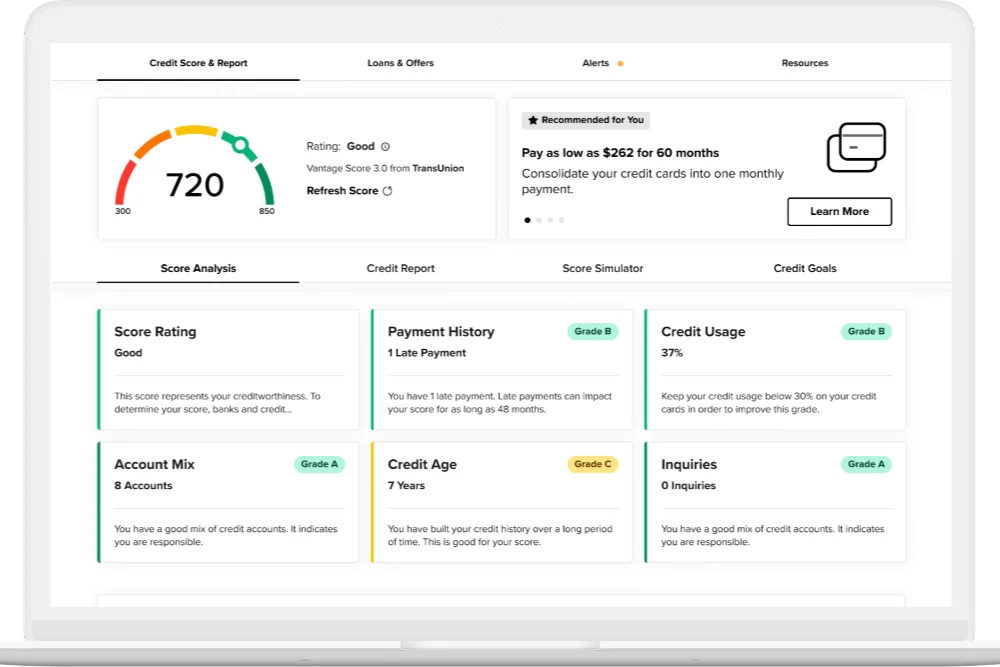Your credit score isn’t just a number. It’s a financial tool. It can unlock opportunities like lower interest rates, making it easier to qualify for everyday needs like loans or housing.
If you’re buying a car, applying for a mortgage, or renting an apartment in Maryland, your credit score plays a bigger role than you may think. It influences how much you’re approved for, the rates you’ll receive, and even how much you’ll pay in the long run.
This guide will help you understand how your credit score works, why it matters, and how you can improve it.
What is a credit score?
Your credit score is a three-digit number that shows how likely you are to repay borrowed money. Credit bureaus (Experian, Equifax, and TransUnion) collect data from your financial history. Scoring models like FICO turn that data into a score.
Lenders use this score to make decisions about approving loans, issuing credit cards, and setting interest rates.
These are the typical credit score ranges
| Score range | Category |
| 800+ | Excellent |
| 740-799 | Good |
| 670-739 | Fair |
| Below 670 | Needs work |
The higher your score, the more confident lenders are that you’ll repay what you borrow. That confidence can mean lower rates, better terms, and easier access to credit.
Why your credit score matters
A good credit score positively impacts your financial well-being with:
- Lower interest rates on auto loans and mortgages.
- Better chances of approval for credit cards and rental applications.
- More favorable terms when borrowing or refinancing.
On the other hand, a low score can lead to higher interest payments, limited access to credit, or even denials for housing or services.
The good news is your score is not fixed. Even small steps can lead to big improvements over time.
What impacts your score
Your score is calculated based on five factors.
- Payment history (35%): This is your track record for paying bills on time. A single missed payment can cause a dip, but consistent, on-time payments rebuild trust.
- Credit utilization (30%): This looks at how much of your available credit you’re using. Aim to use less than 30% of your total limit. For example, if your credit limit is $9,000, try to keep your balance under $2,700.
- Length of credit history (15%): The longer your accounts have been open, the better. Even if you don’t use old credit cards, keeping them open helps.
- New credit (10%): Every time you apply for new credit, lenders check your report. Too many applications in a short time can impact your score.
- Credit mix (10%): This refers to the variety of credit types you use, like credit cards, car loans, student loans, etc. A healthy mix shows you can manage different types of credit responsibly.
Tips to improve your credit score
If your credit score is in the “fair” or “needs work” category, don’t panic. Many Marylanders are in the same boat. Improving your score is about consistency and good habits.
Here are a few ways to get started.
- Pay bills on time: Set reminders or use auto-pay to avoid late payments.
- Pay down credit card balances: Focus on high-interest debt first.
- Keep old accounts open: They help build your credit history.
- Limit new credit applications: Only apply when necessary.
- Check your credit report for errors: Mistakes can be fixed, and they matter.
Even small wins, like making one on-time payment or reducing one balance, can start to shift your score upward.
Track your progress with SECU
Your credit score has the power to shape your financial future, but you don’t have to manage it alone. SECU is here to help you understand, track, and improve your score with the tools and support you need.
SECU members have access to a benefit that helps you stay on top of your credit. You can:
- View your credit score and full credit report.
- Get personalized recommendations on how to improve your score.
- Monitor changes over time through your online account.
- Rest easy knowing it won’t affect your score to check it.
It’s safe, easy, and built to help you take control of your financial future.
Want to take control of your credit future? Log in to your SECU online banking account, enroll in Credit Score, and start your personalized credit improvement journey.

